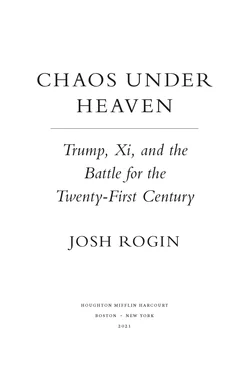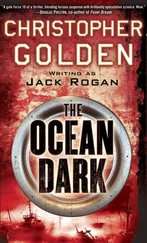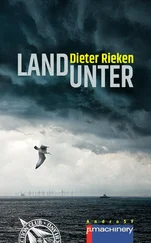The Real Letter X?
Still missing from the conversation of US strategy toward China was an explanation of how the Trump administration—or at least the China thinkers inside it—thought about why Beijing was rising in this way. To understand where the CCP was going required understanding the sources of CCP conduct. Trump officials often talked about the symptoms, but rarely the cause. Pottinger, who had written the original memo (Bill’s Paper) tackling this question during the transition, wanted to put out a public version, but he wasn’t in a position to do it. So he turned to an old friend, now a congressman representing Wisconsin, Mike Gallagher, to do it for him.
Gallagher, a military vet and rising GOP star with a PhD of his own, first met Pottinger in 2007 in Baghdad, when the two Marine intelligence officers’ deployments overlapped. Gallagher was a young Arab linguist; Pottinger was a not-so-young Mandarin linguist who was well known in the small Marine intelligence community because of his unique story as a former journalist who needed an age waiver to join the Marines in his thirties.
The two became friends, and later they would both work as reservists in the Defense Intelligence Agency under its then director, Michael Flynn. Years later, Gallagher was hired as the Middle East professional staff member for the Senate Foreign Relations Committee under then-chairman Bob Corker of Tennessee. He left that job in 2015 to become the national security adviser to a presidential candidate from his home state, Governor Scott Walker. He turned to Pottinger for help on all things China. Pottinger sent him a 2015 version of Bill’s Paper.
“That document, more than anything else I had read, really forced me to change my focus as a young foreign policy hand and change my perception of Asia,” Gallagher told me. “That document really is the closest thing we’ve had to a Long Telegram that I’ve come across, despite numerous attempts by various people to write one . . . That was when I realized that Matt was smarter than everybody else.”
Walker dropped out early, but Gallagher parlayed his new Wisconsin political connections into an unlikely run for Congress in Wisconsin’s Eighth District, where Republican Reid Ribble was retiring. He won. In November 2016, Pottinger sent Gallagher an updated version of the memo.
As Pottinger moved into the administration and Gallagher moved into Congress, the two kept in close touch, meeting once a month for breakfast to strategize about China. In mid-2019, as the State Department’s Long Telegram effort floundered, Pottinger and Gallagher decided to put out one of their own, with Gallagher’s name on the byline. “With his help and over the course of many conversations, I just started to write something that would serve as a framework for thinking about this,” Gallagher said. “George Kennan was from Wisconsin, so I figured why not.”
His article, written with input from his foreign policy adviser Charles Morrison, appeared in the American Interest in May and was entitled “The Sources of CCP Conduct.” It began by quoting Kennan’s Long Telegram, which stated that the Soviet intention was to break “the international authority of [the American] state” and that countering this effort was the “greatest task our diplomacy has ever faced and probably [the] greatest it will ever have to face.”
Gallagher identified the sources of CCP conduct as rooted in China’s long history of viewing itself as the center of “all under Heaven,” a central node around which other nations revolve. He pointed to China’s historic focus on strong centralized leadership as a means of avoiding foreign domination or internal rebellion, which had toppled so many regimes in Beijing over time. He traced the CCP’s long record of using underground influence operations at home and abroad as a means to overcome military asymmetry and shape the environments of its adversaries.
Kennan wrote that the Soviet strategy involved a “cautious, persistent pressure toward the disruption and weakening of all rival influence and rival power.” The CCP’s efforts can be understood the same way, according to Gallagher. Therefore, the United States should learn from the Cold War experience to counter Beijing’s strategy now. Don’t let smaller countries fall prey to China’s influence and pressure campaigns. Work with allies and promote our more attractive set of values, as we did against the Soviet Union.
Don’t fall into the trap of trying to “out China China,” he wrote, pointing to Kennan’s warning that “the greatest danger that can befall us in coping with this probl em of Soviet communism, is that we shall allow ourselves to become like those with whom we are coping.”
There were mistakes from the Cold War that Gallagher believed must not be repeated. For instance, Joseph McCarthy, whose virulent anticommunism led to a witch hunt that cost the careers of many patriotic Americans, was also a former Marine Corps intelligence officer who represented Wisconsin. But McCarthy’s legacy had to be a warning, not a guide. “McCarthyism is an example of ideological warfare done the wrong way,” Gallagher told me. “The primary way we avoid descending into cartoon hawkishness or McCarthyism is to repeatedly reinforce we don’t have a problem with China or the Chinese people, but with the Chinese Communist Party.”
Gallagher’s version of “Letter X” went largely unnoticed. He had pitched it to Foreign Affairs magazine, which had run the original “Letter X,” but they rejected it. Three months later, Foreign Affairs published a different article entitled “The Sources of Chinese Conduct,” by Norwegian historian Odd Arne Westad.
For Pottinger and Gallagher, the issue wasn’t whether the United States and China are in the “foothills” of a new cold war. They wanted to push Washington to make the grand strategic competition with China—whatever you want to call it—the most important thing on the minds of the greatest number of people. They knew it was an uphill climb.
“Within the foreign policy community, many are loitering in the foothills,” Gallagher said. “But some of us have begun to climb the hill, because we realize that the CCP has been climbing the fucking hill for at least a decade now. And we better get moving, otherwise we are going to lose.”
Kennan Is Dead
The truth is, in today’s chaotic information environment, no one document or one proposal could have the impact or unique insight that Kennan’s had in the early days of the Cold War. Everyone wanted to be Kennan but nobody could repeat what he had done. Nevertheless, various actors competed to put forth what they believed was the best theory of the case.
In early 2020, the Trump administration issued what was to be their most comprehensive document that spelled out their China strategy. The report, called the United States Strategic Approach to the People’s Republic of China, laid out the administration’s China policy in more clarity and detail than ever before.
“To respond to Beijing’s challenge, the Administration has adopted a competitive approach to the PRC, based on a clear-eyed assessment of the CCP’s intentions and actions, a reappraisal of the United States’ many strategic advantages and shortfalls, and a tolerance of greater bilateral friction,” it states.
Pottinger, the document’s lead author, told me this was the closest thing the Trump administration would be able to issue to NSC 68, the Truman-era document that sought to provide the actual programmatic plan to respond to Kennan’s Long Telegram and his Letter X. It spelled out how the administration was taking the analysis from its earlier documents and applying them in the real world. Historians will be quick to point out that this was not a perfect analogy. Unlike NSC 68, the strategy didn’t get into the operational details of how the United States was supposed to implement all of its policies. There was scant discussion of resources, much less the trade-offs that would be necessary to carry it out. Those details did exist, but only in classified form, a set of still-secret plans Pottinger revised and updated constantly.
Читать дальше











